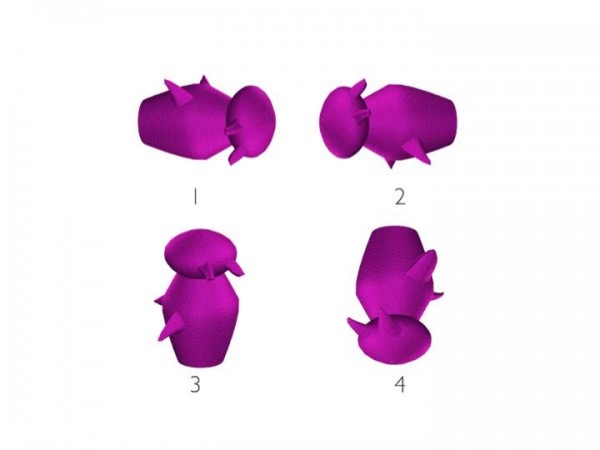By Krisana Estaura, | April 12, 2017

Which Greeble is different? (Michael J. Tarr, Center for the Neural Basis of Cognition and Department of Psychology, Carnegie Mellon University)
Scientists have designed little purple characters in an odd one out puzzle game called Greebles to help in the early detection of Alzheimer's disease.
According to researchers from the University of Louisville, those who are at risk genetically of developing the disease may have difficulty in distinguishing a subtle difference in one of the images.
Like Us on Facebook
The study was published in the Journal of Alzheimer's Disease last week.
Alzheimer's Disease is a progressive neuro-generative disease characterized by declining memory, cognition, and behavior. It affects 5.5 million individuals in the United States and accounts for 60 to 80 percent of dementia cases.
According to the researchers, early detection of the disease may allow researchers to develop treatments of the disease. Greebles, they said, can provide an affordable and effective way to spot individuals in the early stages of the disease.
"Right now, by the time we can detect the disease, it would be very difficult to restore function because so much damage has been done to the brain," said Emily Mason, the lead author of the study. "We want to be able to look at really early, really subtle changes that are going on in the brain. One way we can do that is with cognitive testing that is directed at a very specific area of the brain."
The Daily Mail reported that one of the authors, Dr. Brandon Ally, said that Greebles could also be used as a tool to follow individuals over time.
"We are not proposing that the identification of novel objects such as Greebles is a definitive marker of the disease. But when paired with some of the novel biomarkers and a solid clinical history, it may improve our diagnostic acumen in early high-risk individuals," he said.
Greebles were invented by Yale University psychologist Robert Abelson and is now often used in mental rotation task experiments.
-
Use of Coronavirus Pandemic Drones Raises Privacy Concerns: Drones Spread Fear, Local Officials Say

-
Coronavirus Hampers The Delivery Of Lockheed Martin F-35 Stealth Fighters For 2020

-
Instagram Speeds Up Plans to Add Account Memorialization Feature Due to COVID-19 Deaths

-
NASA: Perseverance Plans to Bring 'Mars Rock' to Earth in 2031

-
600 Dead And 3,000 In The Hospital as Iranians Believed Drinking High-Concentrations of Alcohol Can Cure The Coronavirus

-
600 Dead And 3,000 In The Hospital as Iranians Believed Drinking High-Concentrations of Alcohol Can Cure The Coronavirus

-
COVID-19: Doctors, Nurses Use Virtual Reality to Learn New Skills in Treating Coronavirus Patients








